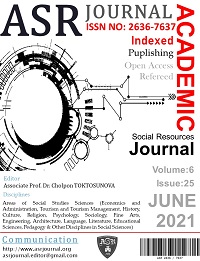Author :
Abstract
Yapılandırmacılık, sosyal hizmet için görece yeni bir yaklaşım olmakla birlikte sosyal hizmetin bilgi temelinde bulunan ekolojik yaklaşım, sistem yaklaşımı ve güçlendirme yaklaşımı gibi pek çok kurama ait ilke ve kavramı yansıtmaktadır. Özünde sanat, matematik, edebiyat, felsefe, sosyal ve davranış bilimlerinde kullanımı daha eskiye dayanan bu yaklaşımın, sosyal hizmetin temel kabulleriyle örtüşen pek çok ortak yönünün bulunduğu görülmektedir. Bireylerin kendi gerçekliklerini çevreleriyle etkileşimleri sonucunda oluşturduğu epistemolojik bakış açısını içeren yapılandırmacılıkta, bireylerin söz konusu etkileşimlerinde bilişsel şemaları temelinde olayları yorumlama eğiliminde oldukları anlayışı vardır. Sosyal hizmetteki bireyi çevresi içinde ele alan ekolojik bakış müracaatçıların gerçekliklerini oluşturmalarında çevrenin önemine işaret etmektedir. Bu kapsamda yapılandırmacılık, sosyal hizmette öne çıkan çevre-bilişsel yapı analizine uygun bir yaklaşımdır. Ülkemizdeki sosyal hizmet literatüründe postmodern teorilerin kullanımını içeren çalışmaların daha az olduğu görülmektedir. Bu nedenle sosyal hizmetin bilgi temeline katkıda bulunmayı amaçlayan bu makalede, postmodern yaklaşımlardan biri olan yapılandırmacılık teorisinin tarihsel ve felsefi süreçleri açıklanarak sosyal hizmetteki kullanımına yer verilmiştir
Keywords
Abstract
Although constructivism is a relatively new approach to social work, it reflects the principles and concepts of many theories such as the ecological approach, system approach and empowerment approach that are based on the knowledge of social work. It is seen that this approach, which is essentially used in arts, mathematics, literature, philosophy, social and behavioral sciences, has many common aspects that overlap with the basic assumptions of social work. In constructivism, which includes the epistemological perspective that individuals create their realities because of their interactions with their environment, there is an understanding that individuals tend to interpret events on the basis of their cognitive schemes in these interactions. The ecological view that deals with the individual in social work within its environment indicates the importance of the environment in forming the realities of the clients. In this context, constructivism is an approach suitable for environmental-cognitive structure analysis that stands out in social work. It is seen that there are fewer studies involving the use of postmodern theories in the social work literature in our country. For this reason, this article, which aims to contribute to the knowledge base of social work, explains the historical and philosophical processes of constructivism theory, one of the postmodern approaches, and its use in social work.
Keywords
- Caputo, R.; Epstein, W. Stoesz, D. & Thyer, B. (2015). “Postmodernism: A Dead End in Social Work
- Caputo, R.; Epstein, W. Stoesz, D. & Thyer, B. (2015). “Postmodernism: A Dead End in Social Work Epistemology”, Journal of Social Work Education, 51(4): 638-647.
- Carpenter, D. & Brownlee, K. (2011). “Constructivism: A Conceptual Framework For Social WorkTreatment“ (Ed. Francis Turner), Social Work Treatment Interlocking Theoretical Approaches, ss.96-116, Oxford University Press, United States of America.
- Cooper, B. (2001). “Constructivism in Social Work: Towards A Participative Practice Viability“, The BritishJournal of Social Work, 31(5):721-738. https://www.jstor.org/stable/23716348. Erişim Tarihi: 24.02.2021.
- Dean, R.G. (1993) “Constructivism: An Approach To Clinical Practice“, Smith College Studies in Social Work, 63(2):127-146.
- Hicks, S. (2011). “Explaining Postmodernism: Skepticism and Socialism from Rousseau to Foucault“, Scholargy Publishing, 2nd Edition.
- Gergen, K. J. (2009). “An Invitation to Social Construction”, Second Edition, Sage Publications.
- Green, G. & Lee, M. (2002). "The Social Construction Of Empowerment", (Ed. O'Melia Michael ve Miley Karla), Pathways to Power Readings in Contextual Social Work Practice, ss.175-201, Allyn and Bacon.
- Kelly, P. (1996). “Narrative Theory and Social Work Treatment” (Ed. Francis Turner), Social Work Treatment: Interlocking Theoratical Treatment. ss. 461-479, Free Press, New York.
- Lee, M. (1996). “A Constructivist Approach to the Help Seeking Process of Clients: A Response to Cultural Diversity”, Clinical Social Work Journal, 24(2): 187-202.
- Lit, S. & Shek, D. (2002). “Implications of Social Constructionism to Counseling and Social Work Practice”, Asian Journal of Counselling, 9(1&2): 105–130.
- Martinez-Brawley, E.E. (2020). “Changing Perspectives and Changing Goals. Constructivism in Social Work. Re-Visited”, British Journal of Social Work, 50:264–281.
- McGragor, C. (2019). “A Paradigm Framework for Social Work Theory for Early 21st Century Practice”, The British Journal of Social Work, 49(8): 2112–2129.
- Poulin, J .& Matis, S. (2019). "Social Work Practice A Competency-Based Approach", Springer Publishing Company.
- Raskin, J. (2002). “Constructivism in Psychology: Personal Construct Psychology, Radical Constructivism and Social Constructionism”, American Communication Journal, 5(3):1-26.
- Seidl, D. (2004). “Luhmann’s Theory of Autopoietic Social Systems”, Munich Business Research, https://www.zfog.bwl.unimuenchen.de/files/mitarbeiter/paper2004_2.pdf. Erişim Tarihi: 17.12.2020.
- Teater, B. (2015). “Sosyal İnşacılık” (Ed. Abdullah Karatay), Sosyal Hizmet Kuram ve Yöntemleri Uygulama İçin Bir Giriş, ss.87-103, Nika Yayınları. Ankara.
- Weick, A. &Salebeey, D. (1998). “Postmodern Perspectives for Social Work“, Social Thought, 18(3):21-40.





